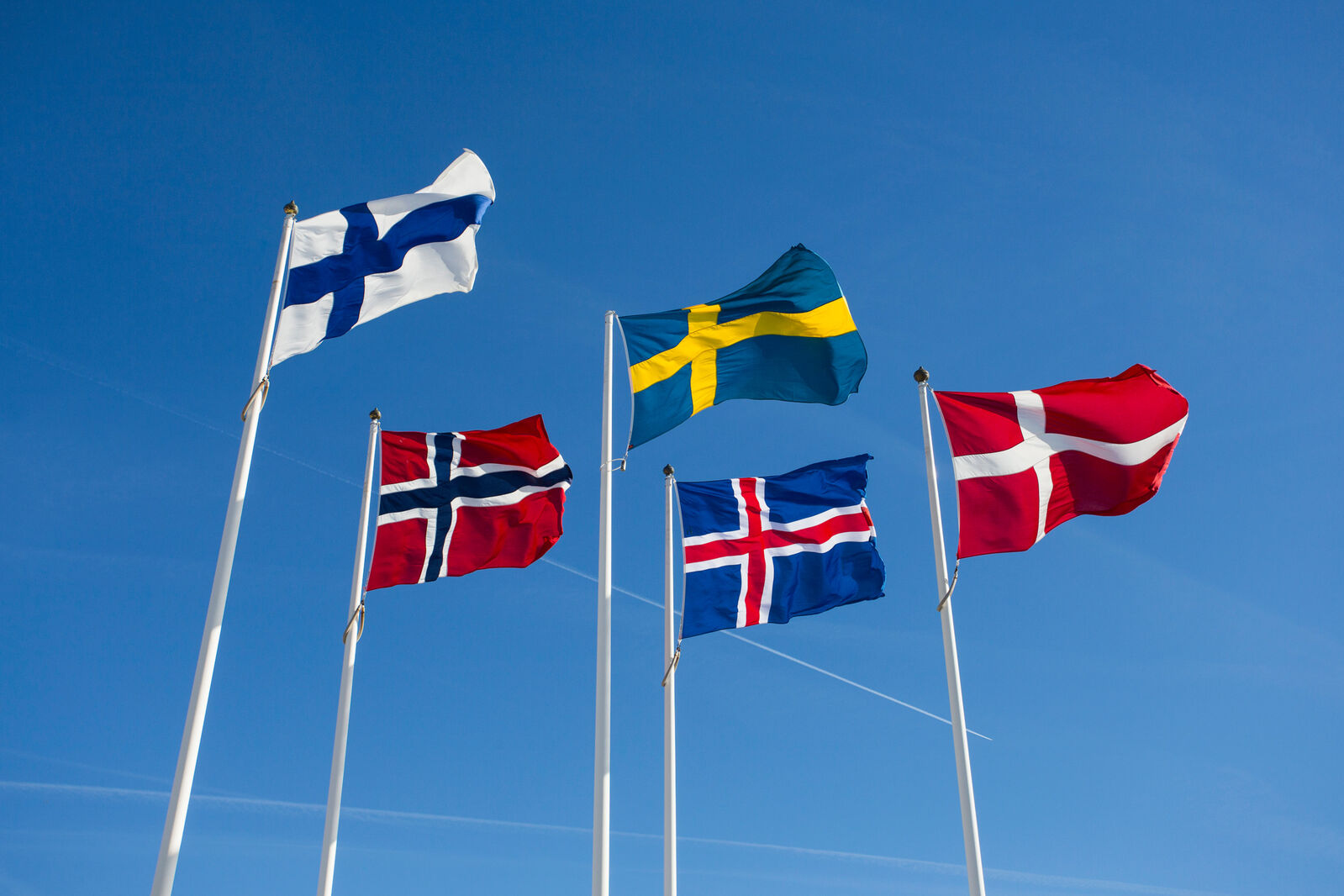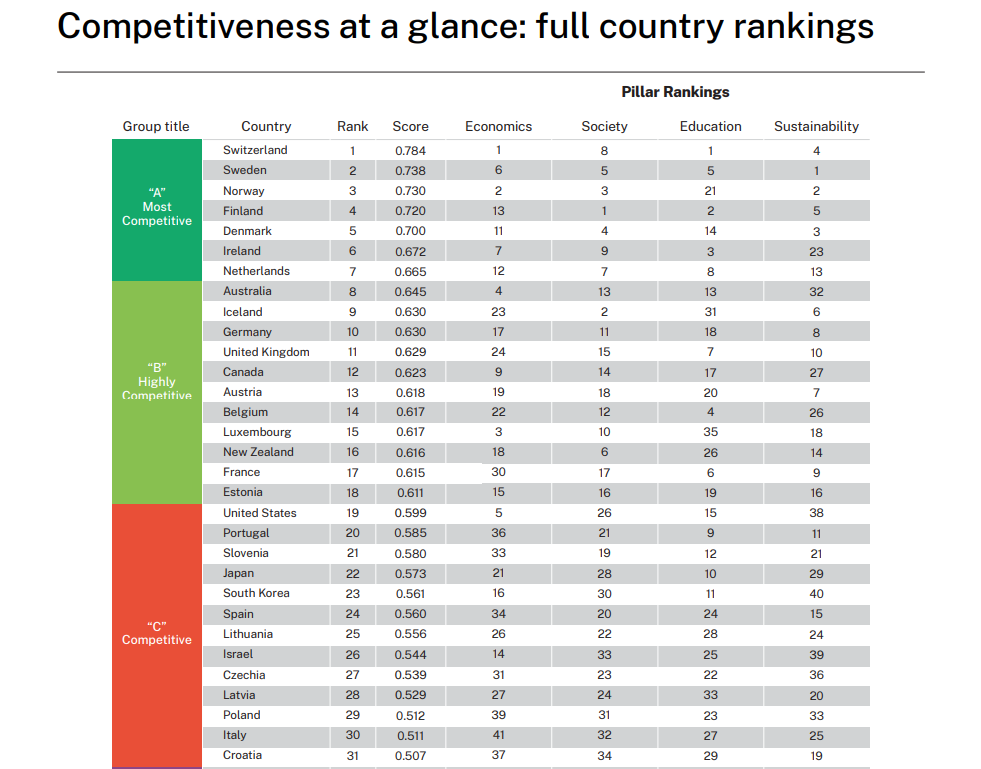Welcome to DU!
The truly grassroots left-of-center political community where regular people, not algorithms, drive the discussions and set the standards.
Join the community:
Create a free account
Support DU (and get rid of ads!):
Become a Star Member
Latest Breaking News
Editorials & Other Articles
General Discussion
The DU Lounge
All Forums
Issue Forums
Culture Forums
Alliance Forums
Region Forums
Support Forums
Help & Search
In data: Why Scandinavian countries are among the world's most competitive
Year after year, Scandinavian countries consistently dominate international competitiveness rankings – and 2025 is no exception. In the latest Competitiveness Report by Eight International, all of them made it to the global top five. What’s the secret behind their success?
https://www.thelocal.se/20251030/in-data-why-scandinavian-countries-are-among-the-worlds-most-competitive/
https://archive.ph/r3bWx

How is a nation’s competitiveness measured?
Competitiveness is about more than just economic growth. It reflects a nation’s capacity to innovate by attracting investment, to improve lives through equal opportunities, and increasingly, to remain resilient in uncertain times. That is why the Competitiveness Report examines four key dimensions: Economics, society, education, and sustainability. This broader definition helps reveal how competitiveness evolves across countries and over time and sheds light on the divides shaping our global landscape.
Which nations perform best?
The Scandinavian countries belong to the world’s seven most competitive nations – despite representing just one percent of the global population. Alongside Sweden, Denmark, and Norway, the group includes Switzerland (1), Finland (4), Ireland (6), and the Netherlands (7). All these countries are relatively small in size and population, which forces them to focus on resource management. Yet, they turn this into an advantage, consistently outperforming the global average across all areas. In the category ‘society’ alone, their scores are nearly 40 percent higher than the global benchmark. This pattern extends to education and sustainability as well.
Why do Scandinavian countries perform so well?
Scandinavia dominates the global top five for competitiveness: Sweden ranks second, Norway third, and Denmark fifth. Their success rests on more than one factor, and the common theme is balance. These nations combine steady economic growth with strong social development, scoring consistently well across all measured dimensions. Two pillars stand out beyond economics: Sustainability and society. Sweden leads the world in sustainability, with Norway and Denmark close behind. All three have long been at the forefront of the green economy, positioning themselves as global leaders in the energy transition.
On the societal front, cohesion is the defining strength. Norway ranks third, followed by Denmark and Sweden, with Scandinavian societies reporting world-leading levels of trust, political stability, and press freedom. Yet, there is still room for improvement. Education remains a weak spot compared to Scandinavia's performance in other categories. Sweden performs best in fifth place, but Denmark falls to 14th and Norway to 21st. While human capital remains a cornerstone of Scandinavian competitiveness, international benchmarks like PISA point to a decline in academic performance – a challenge that could shape their future edge.
snip

3 replies
 = new reply since forum marked as read
Highlight:
NoneDon't highlight anything
5 newestHighlight 5 most recent replies
= new reply since forum marked as read
Highlight:
NoneDon't highlight anything
5 newestHighlight 5 most recent replies
In data: Why Scandinavian countries are among the world's most competitive (Original Post)
Celerity
Thursday
OP
Aristus
(71,216 posts)1. Um. Technically, Finland is not part of Scandinavia.
The Finnish language is completely unrelated to the languages of Norway, Sweden, Denmark, and Iceland, all of which enjoy relative levels of mutual intelligibility.
eppur_se_muova
(40,452 posts)2. Definitions vary with context.
Celerity
(52,823 posts)3. The article does not say Finland is Scandinavian.

and

(Finland is ranked 4th)
